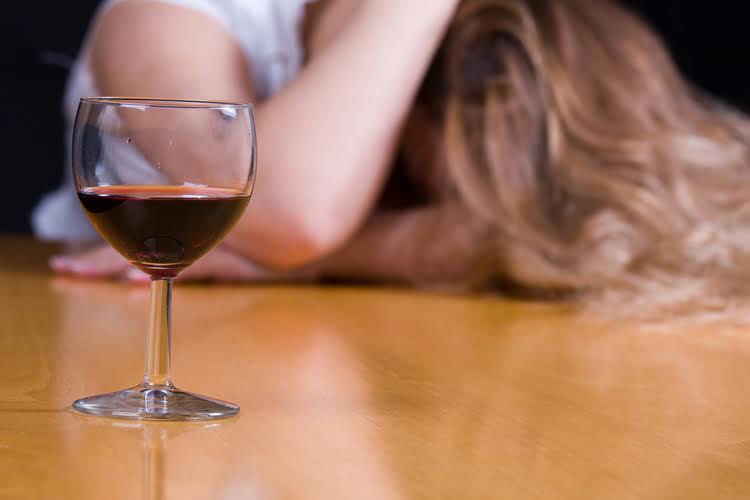Depressive symptoms can result from life stressors, mental health conditions, medical conditions, and other factors. In contrast, anger on its own is not a diagnosable mental health condition. Rather, it is an unpleasant but common emotion that everyone experiences from time to time.

If your symptoms of depression continue, speak to your GP for help. The aforementioned depressive disorders each have slightly different diagnostics criteria. According to a review from 2017, alcohol is more likely to cause personality shifts related to negative emotions, but that doesn’t mean anger is the most common emotional experience while drinking. If you live with underlying anger challenges, for example, it may not be as noticeable when you’re sober because your frontal lobe allows you to manage your emotions and your behaviors. When you drink alcohol, those inhibitions are lifted, and if you’re feeling angry, you’re more likely to express it and do so in an exaggerated way.
How Anger and Alcohol Contribute to Domestic Violence
If you drink regularly to manage depression symptoms, it may have be beneficial to work with a therapist who specializes in treating co-occurring depression and alcohol use. When other factors beyond alcohol play into your mood, however, feelings of depression might persist even after your hangover improves. When you have healthy habits in place to cope with unwanted feelings, you’ll probably find it easier to use these strategies to push back against distressing emotions you might experience while drinking. Drinking water may not have a direct impact on feelings of depression, but rehydrating can absolutely help you start feeling better physically. As hangover symptoms begin to subside, the emotional effects may follow.
Because alcohol can make you lose your inhibitions and act more impulsively, it may lead to actions such as self-harm or suicide. Alcohol also slows down how your brain processes information, making it harder to work out what you’re really feeling and the possible consequences of your actions. Alcohol is a depressant, which can disrupt the balance of neurotransmitters (chemical alcohol depression and anger messengers) in your brain and affect your feelings, thoughts and behaviour. Besides medication and psychotherapy, your doctor may suggest some other strategies. Writing in a journal, reading or writing poetry, artistic self-expression, and listening to music can help, Dr. Ranjbar says. Nonstrenuous, slow, yoga-like exercises can help your muscles relax and make you feel calmer.
Alcohol and Depression
This means drinking over 8 units in one day for men, and over 6 units in one day for women. Other people drink alcohol to help them to deal with difficulties in their lives. If you think you are experiencing any medical condition you should seek immediate medical attention from a doctor or other professional healthcare provider. If you have questions about any medical matter, you should consult your doctor or other professional healthcare provider without delay.
Drinking activates the reward system in your brain and triggers dopamine release, so alcohol often seems to have a stimulating effect — at first. Read our review of the best online therapy options to find the right fit for you. In addition, your doctor may prescribe medicines that are meant to lower alcohol cravings, which can reduce your desire to drink. People with depression frequently lose interest in activities that once brought them joy like hobbies and social events.
Signs and Symptoms of Depression
Among the prescription medications for depression are the selective serotonin reuptake inhibitors (SSRIs) such as Prozac (fluoxetine), Paxil (paroxetine), Zoloft (sertraline), and Celexa (citalopram). A different class of antidepressants known as serotonin and norepinephrine reuptake inhibitors (SNRIs) includes Effexor (venlafaxine) and Cymbalta (duloxetine). Abuse in early childhood can lead to problems in learning to control and express emotions, according to the National Center for PTSD. This can lead to angry outbursts throughout life, if not addressed. “Anger is directed outward and it has non-verbal cues, like a person’s body position,” Dr. Dicker says. When the anger spills out and seems out of control, angry outbursts result.
- This means drinking over 8 units in one day for men, and over 6 units in one day for women.
- CBT can help you learn to manage your feelings and to communicate better with those around you, Dr. Dicker says.
- Understanding the link between alcohol and depression can help you better manage depression after drinking, or better yet, prevent it from happening in the first place.
- They can also help you take steps toward identifying other depression symptoms and finding the most helpful treatment.
However, it can be harmful and destructive if you cannot control your anger. You can receive 24/7 text support right away and at your convenience. There is no obligation to enter treatment and you can opt out at any time.
The Link Between Alcohol and Aggression
You may feel angry at the world, angry about events from your past, or even angry at yourself. This anger can be intense and difficult to control, to the point that it worsens your depression and affects your personal and professional relationships. Individuals with mental health conditions may be more likely to use alcohol as a treatment.
Alcohol use disorders may be mild, moderate, or severe, depending on the combination of symptoms you’re experiencing, but drinking problems can exist regardless of a clinical diagnosis. The Centers for Disease Control and Prevention has found that 9 out of 10 adult binge drinkers don’t have a severe alcohol use disorder, but that doesn’t mean alcohol isn’t a problem for them. Drinking to cope with depression, no matter if you have an alcohol use disorder, is concerning. Becoming angry when intoxicated can lead to domestic violence incidents. In a WHO assessment on domestic violence and alcohol, 55% of surveyed Americans stated they thought their partner was intoxicated during a physical assault. In most cases, women are at a higher risk of experiencing alcohol-related domestic violence from male partners.

